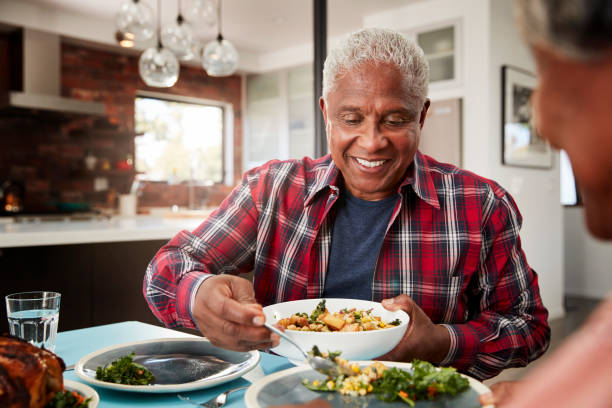Here are some practical and safe ways to increase and stimulate appetite in the elderly:
1. Small, Frequent Meals
- Instead of 2–3 large meals, offer 5–6 smaller meals throughout the day.
- This reduces fatigue from eating and makes food intake more manageable.
2. Enhance Food Flavor and Presentation
- Aging can dull taste and smell, reducing appetite.
- Use herbs, spices, lemon, and natural seasonings (instead of excess salt) to boost flavor.
- Make meals colorful and visually appealing.
3. Nutrient-Dense Snacks
- Offer snacks like yogurt, smoothies, cheese, peanut butter on crackers, or avocado.
- These pack calories and nutrients in small portions.
4. Encourage Social Eating
- Eating with family, friends, or in groups can improve appetite.
- Loneliness often reduces the desire to eat.
5. Hydration Awareness
- Dehydration can suppress appetite.
- Encourage water, soups, smoothies, and fruit with high water content.
- Avoid filling up with excessive fluids right before meals.
6. Light Physical Activity
- Gentle walks or stretching before meals can stimulate hunger naturally.
- Movement improves digestion and metabolism.
7. Routine and Environment
- Serve meals at the same times daily to train the body to expect food.
- Make the eating environment pleasant — good lighting, quiet background, comfortable seating.
8. Medical Check & Supplement.
- Loss of appetite may be linked to medications, dental issues, depression, or chronic illness.
- Consult a doctor to rule out treatable causes.
- If needed, a physician may prescribe appetite stimulants, multivitamins, or nutritional drinks.
✅ Key Note: Appetite loss in the elderly should not be ignored. Early intervention helps prevent malnutrition, weight loss, and weakness.

